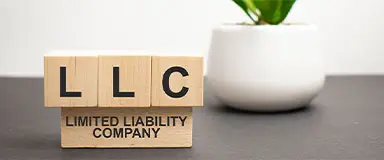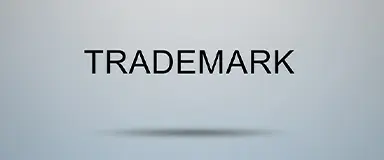LLC in logo: do you have to put it or not, the legal requirements, when it must be included, and how your choices affect trademark protection.
Trademark vs. Copyright: What’s the Difference?
Written by Emily Brooks ·

Protecting your intellectual property is a vital part of running a business or being a creative professional. Whether you’re a poet or a software developer, you need to know that what you make is attributed to you by the letter of the law. You’ve probably heard of applying for trademarks and copyrighting your work — but what’s the difference? Today, we’re looking at the definitions of both a trademark and copyright, how they differ, and which you need.
Trademark and Trademark Infringement Definition
When you start a company, you’ll most likely do research to make sure no other company has the same name or slogan. The primary reason for this is that you want to be unique and stand out from the crowd. However, there are also serious legal ramifications if you don’t do this. Another company with the same name as yours can sue you for trademark infringement.
Trademark infringement means that someone has used a protected brand identifier —such as a name, logo, or slogan — to their own advantage. This advantage can be financial or reputational. If successful, the claimant can be awarded damages plus any profits made by the firm/individual misusing the trademarked brand identifier. In some cases, any partners profiting from this infringement may also have to pay damages.
Trademark cases can be far-reaching and highly damaging. That’s why it’s critical that firms and entrepreneurs carefully consider what identifies them as a brand and take steps to ensure those identifiers are trademarked and protected.
Copyright Definition
Copyright is slightly different. Rather than focusing on brand identifiers, copyright refers to unique content, which can be:
- Music
- Art
- Poetry
- Literature
- Various types of audio recordings
- Architecture
- Photography
- Some aspects of software development, e.g., swathes of unique code
Ideas, concepts, and proposals cannot be copyrighted. The content must exist in full to be eligible for copyright. In legal terms, copyright only applies when an idea has been creatively expressed. Once you’ve created something, you own its copyright. However, for this to be legally recognized and for you to successfully sue anyone who infringes upon that copyright, you may need to register with the U.S. Copyright Office.
Do You Need Both a Copyright and a Trademark?
In some instances, you may need both trademark protection and recognized copyright. For example, you may have a unique design for a product and a catchy slogan or brand name. You can copyright the design, blueprints, or manufacturing instructions. You can also trademark the brand name, to prevent another party from profiting by piggybacking on the fame of your product.
If you are the unfortunate victim of a cyberattack and have your data stolen, you could find that your design is suddenly publicly available. The ability to legally prove that you hold the copyright on that design can deter others from using it, but can also help you claim damages if someone does decide to try and profit off your design.
When someone tries to use your brand identifiers, you can also take legal action — if you’ve taken the proper steps to ensure your trademarks are protected. That involves ensuring the trademark was unique in the first place, applying for trademark registration, and constant monitoring. Vigilant trademark monitoring services help highlight conflicts and infringements, allowing you to quickly take action as needed.
In Summary: Trademarks Are Essential Protection for Business Identifiers
Copyright and trademarks are both legal protections that you’re likely to need throughout your career. Investing in protecting your copyrighted material helps you be recognized as its creator. Similarly, trademarks ensure that you’re the only one (or only company) who gets to use your unique brand identifiers.
Your brand is so important. If you’re a solo professional, you want to know that your name, logo, or other identifier is only associated with you and your creative works. As a business, it’s essential that your reputation and values aren’t impacted by other parties utilizing your company name, slogan, or product catchphrases. Take the time to research who has similar names and how you can tweak yours to remain unique while cutting through the noise of crowded markets.


